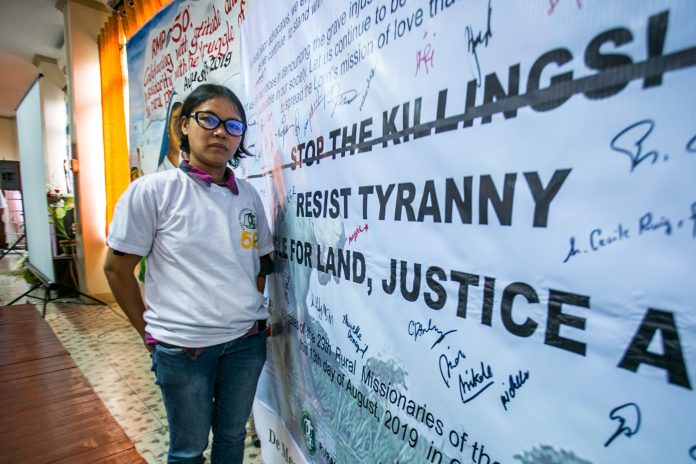The Student Christian Movement of the Philippines (SCMP) called on the government to hold those responsible for red-tagging accountable, noting that it often leads to attacks and even deaths.
The group made the statement after the Supreme Court declared that red-tagging practices, including “vilification, labeling, and guilt by association,” threaten a person’s right to life, liberty, or security.
This ruling, based on former Bayan Muna Representative Siegfred D. Deduro’s experience, emphasized that such actions could justify a writ of amparo to protect constitutional rights.
Kej Andres, SCMP National Chairperson, praised the court’s recognition of red-tagging and criticized past denials of its existence.
He cited comments made by then anti-communist task force spokesperson Lorraine Badoy in 2022, who claimed, “There is no such thing as ‘red-tagging’.”
Andres said red-tagging has “long harmed Filipinos seeking better lives,” adding that beyond a legal definition, red-tagging leads to psychological and physical effects, resulting in illegal arrests and deaths.
The Supreme Court decision acknowledged that “the damages inflicted by red-baiting evolve too: They start from the psychological before they turn physical.”
The SCMP cited cases where red-tagging had dire consequences, such as the death of Samahan ni Maria leader Puroy de la Cruz in the Bloody Sunday Massacre of 2021, the charges against Rev. Glofie Baluntong, and the arrest of youth leader Aldeem Yañez due to allegedly planted weapons.
“Those involved in red-tagging, especially government officials, soldiers, and policemen, must be held accountable,” Andres asserted.
He urged the abolition of frameworks like the National Task Force to End Local Communist Armed Conflict, Executive Order No. 70, and the Anti-Terrorism Act of 2020, which have justified red-tagging practices.
“We pray and act with the Filipino people themselves to protect our human rights by maximizing all means possible, through legal actions and by strengthening schools, civil societies, and communities,” he said.
In a separate statement, Attorney Edre Olalia of the National Union of Peoples Lawyers urged Congress to “pass a law criminalizing red-tagging, considering [the] Supreme Court has spoken loud and clear.”
“At long last, the Supreme Court has finally spoken categorically, unequivocally, and clearly that red-tagging threatens [the] right to life, liberty, and security,” he said.
Olalia said the ruling goes beyond being a legally significant victory or a vindication and safeguard for human rights defenders, as well as a tribute to those impacted.
He noted that it also delivers a strong rebuke to self-righteous red-taggers, past and present, particularly those who manipulate and misinterpret the Court’s statements.









